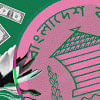Politically-motivated lending must stop

The World Bank's (WB) recent observation about non-performing loans (NPLs) and its connection to politically motivated lending in Bangladesh does not come as a surprise. We have repeatedly warned about the risks of bending banking rules to lend to politically connected special interest groups, which has led to default loans soaring. Experts too have called attention to this issue over the years to no avail.
Consequently, there has been a 20.7 percent increase in NPLs from 2022 to 2023, amounting to a total NPL of Tk 145,633 crores in December 2023, with almost half belonging to state-owned banks. When the Awami League assumed office in 2009, the NPL figure was Tk 22,481 crore. Over the last one and a half decade, while private commercial banks mushroomed (from 30 in 2008-2009 to 43 in 2024), NPLs grew by more than six times. Loans were given out without proper credit risk management, lending and recovery rules were bent or relaxed, and the independence of regulatory bodies further compromised all to favour certain politically linked borrowers, many of whom later became defaulters. Meanwhile, no big defaulter has been brought to book.
As the WB report rightfully points out, honest borrowers and businesses are bearing the brunt of the NPL burden, as interest rates continue to rise and ailing banks face liquidity crisis. Despite repeated warnings, no effective measures have been taken to rectify the poor governance, weak market discipline and low capital buffers in the banking sector. Capital adequacy ratio in Bangladesh's banking sector is in fact one of the lowest in South Asia, which means that in the face of unexpected losses, many banks may not have adequate capital to meet their obligations to depositors and creditors.
Unfortunately, the effort spent to understate NPLs by using poor accounting and disclosure standards and regulatory forbearance, was absent in the government's initiative to properly address the vulnerabilities of the financial sector. Before we thrust ourselves to a point of no return, the government must heed expert advice and warnings by the WB and other international financial institutions and put an end to political consideration in lending and default loan recovery. Lastly, authorities must ensure the autonomy of the central bank, not only on paper but in actual terms, upgrade its supervisory and regulatory capacity to fix the problems of the banking sector, and ensure that banks in the country are strictly adhering to internationally accepted banking guidelines and standards.


 For all latest news, follow The Daily Star's Google News channel.
For all latest news, follow The Daily Star's Google News channel. 









Comments